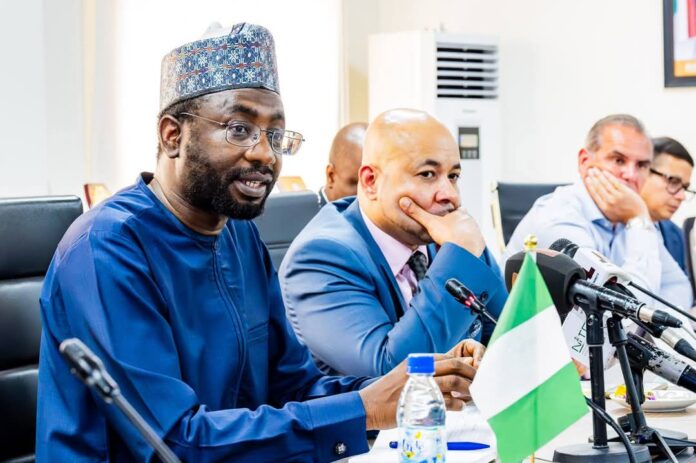
Strengthening Nigeria’s Cybersecurity: Beyond NITDA-UK Partnership
By Fatimah Yusuf Usman
Cybersecurity is a growing concern in Nigeria, with increasing threats targeting individuals, businesses, and government institutions. To address this, the National Information Technology Development Agency (NITDA), has partnered with the United Kingdom to enhance Nigeria’s cybersecurity framework. While this collaboration leverages UK expertise and best practices, its success depends on addressing key challenges.
Cyber threats such as phishing, financial fraud, and data breaches have escalated due to the rapid digitalization of financial services, e-governance, and business operations. Given the UK’s advanced cybersecurity landscape, this partnership presents an opportunity for Nigeria to strengthen policies, enhance defenses, and develop better response strategies. Adopting global best practices will help mitigate cyber risks affecting individuals and institutions alike.
Beyond technology, cybersecurity is a national security priority. A resilient framework is essential to protecting government data, critical infrastructure, and personal information. Through this partnership, Nigeria can adopt modern cybersecurity tools, frameworks, and policies to improve digital security.
However, there are concerns that must be addressed to ensure the partnership’s effectiveness. One is the risk of over-reliance on foreign expertise. While it is beneficial to learn from the UK, Nigeria must focus on developing its local cybersecurity workforce. Knowledge transfer should not just be about receiving solutions from external partners but about empowering local experts to create homegrown solutions tailored to Nigeria’s unique cyber challenges.
Another challenge is the enforcement of cybersecurity policies. While Nigeria has laws such as the Cybercrime Act (2015), compliance remains weak. Many organizations fail to implement basic security measures, making them vulnerable to cyberattacks. This partnership must go beyond policy formulation and emphasize enforcement, accountability, and the introduction of updated regulations that reflect evolving digital threats.
Financial sustainability is also crucial. Building a strong cybersecurity framework requires continuous investment in infrastructure, research, and local training programs. Without a clear funding strategy, this initiative risks being short-lived. The private sector, particularly financial institutions, telecom companies, and tech firms, must also play an active role in strengthening cybersecurity. Public-private partnerships can help bridge the gap between government efforts and corporate security strategies.
Awareness remains a major issue, as many cyberattacks succeed due to human error, such as falling for phishing scams or using weak passwords. While the NITDA-UK collaboration emphasizes cybersecurity education, there should be a stronger focus on grassroots awareness campaigns targeting small business owners, students, and non-tech-savvy individuals. Introducing cybersecurity education in schools and universities, along with mandatory corporate training programs, will create a more cyber-aware society.
As Nigeria advances technologically, securing emerging innovations like Artificial Intelligence, Blockchain, and the Internet of Things (IoT) must be a priority. Many industries are adopting these technologies without adequate security measures, exposing them to cyber risks. The government should introduce cybersecurity compliance frameworks and encourage businesses to integrate security from the outset of their digital innovations.
To ensure accountability, progress must be tracked. The government should provide periodic reports on the achievements of the NITDA-UK collaboration, highlighting measurable improvements in cybersecurity resilience. Nigerians need to see tangible results, such as reduced cybercrime, stricter enforcement, and greater adoption of security best practices across industries.
Cybersecurity must be treated as an ongoing priority rather than a short-term initiative. Digital threats are constantly evolving, requiring long-term commitment regardless of changes in political leadership. Sustained investment in cybersecurity research, innovation, and infrastructure will be key to national security. Providing tax incentives for businesses investing in cybersecurity and supporting local startups will also encourage indigenous innovation.
By fostering a thriving cybersecurity ecosystem, Nigeria can develop solutions that not only protect its digital space but also position the country as a leader in African cybersecurity. This will open up economic opportunities, including cybersecurity consulting and ethical hacking programs, creating jobs and boosting the digital economy.
The NITDA-UK partnership is a step in the right direction, but its success depends on proper implementation, local capacity building, and long-term commitment. Cybersecurity is an ongoing battle, and the responsibility lies with the government, private sector, and citizens to create a secure and digitally empowered Nigeria.
Fatimah Yusuf Usman is a Corps Member serving at PRNigeria Centre, Abuja. She can be reached via: [email protected]















